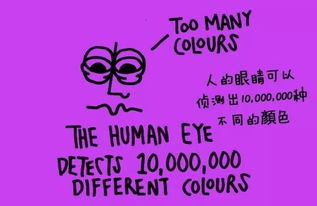
100

Cool and Funny English Facts
Do you love to learn some quirky and intriguing facts about the English language? If so, you've come to the right place! Here are 100 cool and funny English language facts that you might not know:
1. 'Abstemious' is the only word in English that has all the vowels in order.
2. 'Rhythm' is the longest English word without a vowel.
3. In English, the only word that ends in 'mt' is 'dreamt.'
4. The word 'set' has the most definitions in the English language.
5. The longest one-syllable word in English is 'screeched.'
6. 'Queueing' is the only English word with five consecutive vowels.
7. 'I' is the oldest word in the English language.
8. 'Strengths' is the longest word in the English language with just one vowel.
9. The word 'bookkeeper' is the only English word with three consecutive letters repeated twice.
10 The letter 'E' is the most commonly used letter in the English language.
11. 'Beelzebub' is another name for the devil that comes from the Hebrew word 'ba'al zebub,' meaning 'lord of the flies.'
12. 'Rhinorrhea' is the medical term for a runny nose.
13. 'Methionylthreonylthreonylglutaminylarginylisoleucine' is the longest word in the English language, with 189,819 letters.
14. 'Palindrome' is a word or phrase that can be read the same way forwards and backward.
15. 'Hippopotomonstrosesquippedaliophobia' is the fear of long words.
16. 'Sesquipedalian' means someone who uses long words.
17. 'Aegilops' is the longest word that can be typed using only one row of the keyboard.
18. 'Crazy' is considered a compliment in English slang.
19. 'Ghoti' is a word that can be pronounced 'fish' in English.
20. 'Ough' is one of the most confusing letter combinations in English, as it can be pronounced eight different ways.
21. 'Eunoia' is the shortest word in the English language that contains all five vowels.
22. 'Ate' is the smallest word in the English language with all four vowels.
23. 'Syzygy' is the only English word that has three 'y's' in it.
24. 'Skepticism' and 'scepticism' are both correct spellings in English.
25. 'The quick brown fox jumps over the lazy dog' is a sentence that contains every letter in the English alphabet.
26. 'Lighthouse' is the longest word you can type using only your left hand.
27. The word 'almost' is the longest word in the English language with its letters in consecutive alphabetical order.
28. 'Buffalo buffalo Buffalo buffalo buffalo buffalo Buffalo buffalo' is a grammatically correct sentence in English.
29. 'Crwth' is the only English word that has no vowels.
30. 'Worcestershire' is a tricky English word to pronounce correctly.
31. 'Zyzzyva' is the last word in most English dictionaries.
32. 'Phthalo' is the shortest word in English that begins with 'ph.'
33. 'A' is the only English word with more than one letter that does not contain a vowel.
34. 'Avocado' comes from the Aztec word 'ahuacatl,' which means testicle.
35. 'Time flies like an arrow' is an example of a garden path sentence in English.
36. 'Equivocal' means to have double meanings.
37. The longest word in English that can be typed using only the left hand is 'stewardesses.'
38. 'Mnemonic' is a device used to aid memory.
39. 'Tittynope' means a small amount of anything left over.
40. 'Anemone' is a Greek word that means 'daughter of the wind.'
41. 'Improper' is the longest English word that can be written using only the top row of a QWERTY keyboard.
42. 'Oxymoron' is a phrase that combines two contradictory terms.
43. 'Egg' is the only word in English that contains the letters a, e, i, o, and u in that order.
44. 'Gill' can mean both a unit of measurement and a body part in English.
45. 'Incomprehensibility' is the longest English word that can be spelled without repeating any letters.
46. 'Infant-teacher' is the longest hyphenated word in the English language.
47. 'Nympholepsy' is a rare historical term that refers to an uncontrollable desire or passion for something.
48. 'Ghoti' is a word created by George Bernard Shaw to demonstrate the absurdities of English spelling. It is pronounced as 'fish' by using 'gh' as 'f,' 'o' as 'i,' and 'ti' as 'sh.'
49. 'Ghoti' is also the name of a fake fish species invented by pranksters to fool scientists.
50. 'Favus' is a medical term for a fungal infection of the scalp.
51. 'Flews' are the lips of a dog.
52. 'Galactagogue' is any substance that increases lactation in humans or animals.
53. 'Gynecomastia' is a medical condition characterized by enlarged breast tissue in males.
54. 'Chrysopoeia' is the alchemical process of transmuting base metals into gold.
55. 'Troglodyte' is a person who lives in a cave or a remote area.
56. 'Megalopolis' is a very large city, typically one that is an urban agglomeration.
57. 'Gastropod' is a class of mollusks that includes snails, slugs, and whelks.
58. 'Obfuscation' means to make something unclear or confusing.
59. 'Solecism' means a grammatical mistake or error.
60. 'Nimrod' was originally a Biblical figure, but is now commonly used as a term for a foolish or incompetent person.
61. 'Picayune' means petty or trivial.
62. 'Sesquicentennial' is a 150th anniversary.
63. 'Hodag' is a mythical creature from Wisconsin.
64. 'Trompe l'oeil' is a French term that means 'trick of the eye' and refers to an art technique that creates the illusion of three-dimensional space on a flat surface.
65. 'Synonym' means a word that has the same or nearly the same meaning as another word.
66. 'Antonym' means a word that has the opposite meaning of another word.
67. 'Idiom' is a phrase whose meaning cannot be understood from the literal definition of its individual words.
68. 'Nauseous' means causing nausea, but is often used incorrectly to mean feeling nauseated.
69. 'Hoi polloi' is a Greek phrase that means 'the many' and is used to refer to the common people.
70. 'Ad hominem' is a Latin term that means 'to the man' and is used to describe an argument or criticism that attacks someone personally instead of addressing the issue at hand.
71. 'Ergo' is a Latin word that means 'therefore' or 'consequently.'
72. 'Et cetera' is a Latin phrase that means 'and so on' or 'and other things.'
73. 'Id est' is a Latin phrase that means 'that is' or 'in other words.'
74. 'Caveat emptor' is a Latin phrase that means 'let the buyer beware' and is used to remind people that they are responsible for their own purchases.
75. 'Cogito ergo sum' is a famous Latin phrase that means 'I think, therefore I am' and was coined by philosopher Rene Descartes.
76. 'Deus ex machina' is a Latin phrase that means 'god from a machine' and refers to a plot device in which a seemingly unsolvable problem is solved by a miraculous intervention.
77. 'Carpe diem' is a Latin phrase that means 'seize the day' and is often used to encourage people to live in the moment.
78. 'Veni, vidi, vici' is a famous Latin phrase that means 'I came, I saw, I conquered' and was famously uttered by Julius Caesar.
79. 'Magnum opus' is a Latin phrase that means 'great work' and is used to describe a masterpiece.
80. 'Non sequitur' is a Latin phrase that means 'it does not follow' and is used to describe a statement or argument that does not logically follow from the previous one.
81. 'Persona non grata' is a Latin phrase that means 'an unwelcome person' and is often used to describe someone who is no longer welcome in a particular place or circle.
82. 'Post hoc ergo propter hoc' is a Latin phrase that means 'after this, therefore because of this' and refers to the fallacy of assuming causation based on temporal succession alone.
83. 'Pro bono' is a Latin phrase that means 'for the public good' and is often used to describe legal work that is done for free.
84. 'Quid pro quo' is a Latin phrase that means 'something for something' and refers to the exchange of goods or services for something else of equal value.
85. 'Status quo' is a Latin phrase that means 'the current state of affairs' and is often used to describe a situation that is unchanging.
86. 'Tempus fugit' is a Latin phrase that means 'time flies' and is often used to lament the passage of time.
87. 'Vox populi' is a Latin phrase that means 'voice of the people' and is often used to describe public opinion.
88. 'A posteriori' is a Latin phrase that means 'from the latter' and refers to knowledge that is derived from experience or empirical evidence.
89. 'Ad nauseam' is a Latin phrase that means 'to the point of nausea' and describes something that has been repeated so often that it has become tiresome.
90. 'Alma mater' is a Latin phrase that means 'nourishing mother' and is often used to describe the school or university one attended.
91. 'Ipso facto' is a Latin phrase that means 'by that very fact itself' and is often used to describe something that is self-evident.
92. 'Modus operandi' is a Latin phrase that means 'mode of operation' and is often used to describe a particular way of doing things.
93. 'Tabula rasa' is a Latin phrase that means 'blank slate' and is often used to describe a clean slate or a fresh start.
94. 'Vice versa' is a Latin phrase that means 'the other way around' and is often used to describe a situation in which the roles are reversed.
95. 'Ex cathedra' is a Latin phrase that means 'from the seat of authority' and is often used to describe an official statement or decree.
96. 'In loco parentis' is a Latin phrase that means 'in the place of a parent' and is often used to describe the responsibility and authority that a person or organization has over a child.
97. 'Sic transit gloria mundi' is a Latin phrase that means 'thus passes away the glory of the world' and is often used to reflect on the fleeting nature of worldly success or power.
98. 'Semper fidelis' is a Latin phrase that means 'always faithful' and is often used to describe loyalty or dedication.
99. 'Summa cum laude' is a Latin phrase that means 'with the highest praise' and is often used to describe academic achievement.
100. 'Vice' is a Latin word that means 'in place of' and is often used to describe a subordinate or deputy.
These 100 cool and funny English language facts may seem random, but they all contribute to the vibrancy and richness of the language we use every day. They remind us that language is more than just a means of communication; it's also a source of humor, creativity, and cultural heritage. So the next time you encounter an obscure or amusing English word or phrase, take a moment to appreciate its unique beauty and significance!